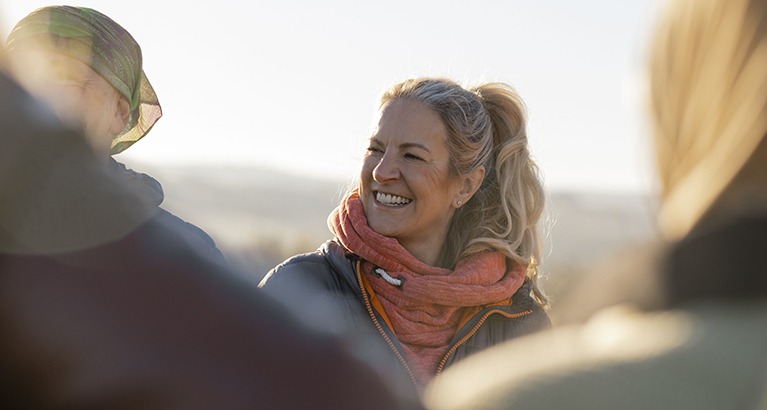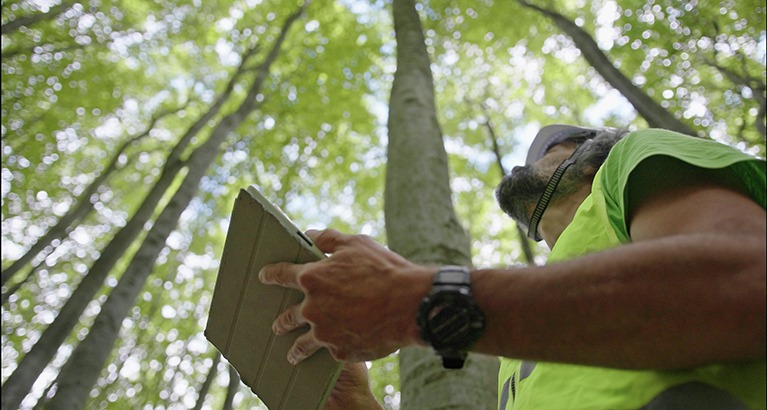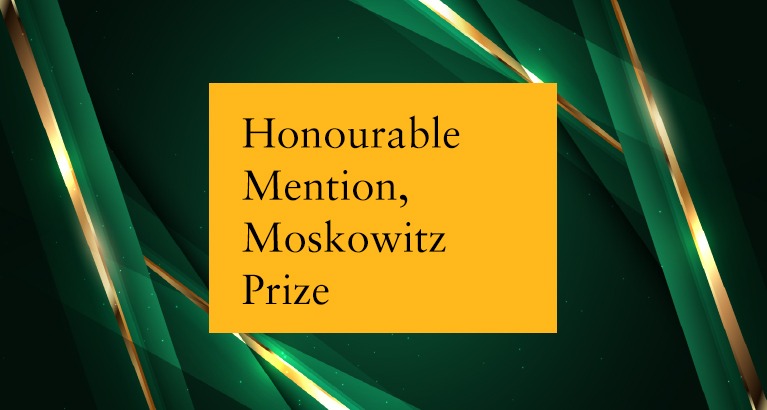As Jonathan Prosser recalls it, he was cleaning his teeth one morning in Sydney, Australia, at a time of growing tension in the Pacific region and thought to himself: “what would be a startup accelerator for peace?”
So Jonathan founded Paxhax.org, an organisation devoted to getting young people involved in furthering positive peace through hackathons and other events, and which includes a growing number of university and civil society chapters that are locally led.
In addition, Jonathan hopes to soon launch a peace venture fund to invest in and support peace innovators – and this is what led him to the Cambridge Peaceshaping and Climate Incubator at Cambridge Judge Business School. The new incubator was established in 2024 at the Cambridge Peaceshaping and Climate Lab, part of the Cambridge Centre for Social Innovation (CCSI) at Cambridge Judge. It was modelled after the Centre’s successful Cambridge Social Ventures programme which has helped more than 300 social enterprises.
The Lab focuses on 3 types of peaceshaping:
- disruptive peaceshaping, which focuses on reframing or dismantling institutions that work against efforts to achieve enduring peace
- creative peaceshaping, which seeks avenues to construct new peace-supporting efforts
- preservation peaceshaping, which focuses on the protection of peace institutions
The crucial intersection of climate and peace around the world
“The Lab focuses on the crucial intersection of climate and peace around the world,” says Neil Stott, Management Practice Professor of Social Innovation and Co-Director of the CCSI at Cambridge Judge, who leads the Lab. “The aim is to better understand the connections between climate-related problems and conflict, and to support and inform organisations seeking to minimise the risk and damage.”
The incubator is the arm of the Lab which actively supports those organisations by convening them and disseminating the Lab’s research. Says Michelle Darlington, Head of Learning Design and Curriculum Development at the CCSI: “The Incubator programme was designed to support organisations that recognise the relationship between climate and conflict, and it aims to mitigate the risks. Building on our experience of supporting social enterprises, we do this by convening a community of practice. This enables the organisations and their leaders to learn from one another as well as from the Lab’s research.”
The Lab focuses on the crucial intersection of climate and peace around the world.
Paxhax.org is one of the ventures in the initial cohort of the incubator, which meet monthly online to share ideas in hopes of a more peaceful planet.
The full list of cohort members:
Climate M.A.D Boardgame
Seeks to raise awareness of climate-change dangers through a game that “simulates a rich variety of competing strategic priorities”.
IFOMN (Islamic Finance Options for Muslim Nonprofits)
Connects nonprofits and Islamic finance to embed Islamic finance principles in sustainable environmental practices globally.
Foresta Honduras
Works with rural communities in Honduras facing heighted risk of displacement through the dual pressures of climate change and social inequality.
Knowledge Without Borders: Improving Access to Education
Focuses on learning opportunities in local languages for communities that often lack such opportunities.
Paxhax.org
Gets young people involved in peacemaking and hopes to launch a venture fund for peace innovators.
Na’amal
Helps refugees around the world develop marketable skills and then links them to sustainable digital remote jobs.
Planetari
Helps educate children to better understand how they fit into the Earth’s ecosystem.
Positive Peace in Indian Schools
Creates scalable peace tools for schools in India including nature engagement and restorative practices.
Share the Platform – Sudan: Education, Healthcare, Sustainability, Arts and Music
Seeks to elevate voices in Sudan to advocate for peace and environmental resilience.
The 6-month incubator programme helps young ventures develop a stakeholder engagement strategy and identify leverage points for impact, then to evaluate how to raise funding and establish a sound governance system. Expressions of interest for the next cohort are now being accepted through the CCSI.
“Today we are looking at stakeholders, thinking about your engagement plans and strategies, and how this relational landscape will affect your work as you advance through the programme,” Nicole Helwig, Executive Director of the CCSI, told the cohort at one of their early sessions.
Funding and scaling up are key goals of the incubator’s ventures
Sessions for the initial cohort have included content that builds on the Centre’s research about creating social ventures in authoritarian regimes and peaceshaping activism through ‘masking’, including creating an alter ego to incubate public dissent about sensitive topics such as disrupting the institution of child marriage in Indonesia.
What attracted us to the incubator was a high-quality team at a proven social innovation centre within a world-leading university, which is stepping forward in an area that has a major need for new approaches and accelerated progress, We hope to accelerate the impact of Paxhax.org and be equipped further as leaders in this peace innovation and peace-tech space.
“What attracted us to the incubator was a high-quality team at a proven social innovation centre within a world-leading university, which is stepping forward in an area that has a major need for new approaches and accelerated progress,” says Jonathan of Paxhax.org. “We hope to accelerate the impact of Paxhax.org and be equipped further as leaders in this peace innovation and peace-tech space.”
Adds cohort member Sonia Catinean of Na’amal:
“Funding is one of our main priorities, as we are looking to grow exponentially as an organisation. We applied to the incubator to extend our impact in addressing the challenges faced by refugees and other displaced people, who are affected by climate change and conflict. We felt the incubator could amplify our voice globally, and help us to be part of a community of changemakers. We have already connected with many incredible individuals from so many inspiring organisations.”
A commitment to systemic change and impact
Other members of the first cohort outline their thoughts on the incubator and how it can make a difference:
“This (the Incubator) is a really courageous undertaking”, said cohort member Cindy Forde of Planetari. “It takes a lot of courage to stand up, and this initiative represents a commitment to systemic change. There’s a real sense of urgency and commitment, and that’s important.”
Adds Caitlyn Lee-Mei of Share the Platform – Sudan: “I did the Masters in Social Innovation programme at Cambridge Judge, and I think (the incubator) represents a really important intersection between peaceshaping and climate.
“I hope that we will be able to make as much of an impact as we possibly can. It’s great that through the incubator we can be linked to academics, and also with other organisations in building the type of knowledge and collective discussions and links to tackle these problems.”
Cambridge Peaceshaping and Climate Incubator
Register your interest in the Cambridge Peaceshaping and Climate Incubator.
Related content
Caines, L. and Darlington, M. (2024) “‘Spot and stop’: predicting and preventing climate related conflict.” CPCL, Research Summary, Cambridge Centre for Social Innovation.
Harbour, S. and Darlington, M. (2024) “Climate mobilities: understanding the climate-environment-mobility nexus.” CPCL, Research Summary, CambriCambridge Peaceshaping and Climate Labdge Centre for Social Innovation.
Krzywinska, T., Darlington, M. and Pendlebury, J. (2024) “Peacegaming: a blueprint for evidence-based co-design.” CPCL, Cambridge Centre for Social Innovation.
Stott, N., Pendlebury, J. and Tracey, P. (2024) “Peaceshaping.” Critical Perspectives on Social Innovation. No 4. Research Summary, Cambridge Centre for Social Innovation.
Kurth, T. and Muruven, D. (2024) “To understand climate mobility, follow the water.” BCG Climate Change and Sustainability Report.






